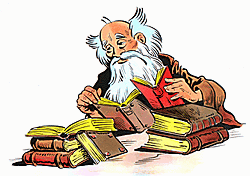Chronicles
(narrative descriptions and records of events from the distant and recent past; as well as, significant current events of global interest)
From Darkness into Light
|
For countless generations, inspired by curiosity, egotism, or a desire for self-improvement, we have given much thought to our past, present, and future. We have sought for knowledge of all three, although we have found an understanding of the first two more accessible than the last. 
We may study human history as it is today, observing the physiology or psychology of living people or analyzing the political, economic, sociological, and technological aspects of modern civilizatoin and their effects, good and bad, upon humanity. On the other hand, we may study the human race as it was in the past, following the course of its physical evolution, making certain deductions about the mental processes from recorded actions and thought, or using material and literary remains to trace the growth of civilization from its beginnings to its present complexity. Studying mankind in both the past and the presentTo better understand and to appreciate our present culture, we need to also know what preceded this civilization that has been created through the centuries. Our civilization was not a spontaneous creation of our century because we have inherited rather than simply created a major portion of our contemporary culture. While treating a subject chronologically; that is, historically, we may trace its development from its "simple beginnings" to a final complexity, observing how and why changes occurred. The ancient period has a special attraction because it provides an opportunity to examine the whole life cycles of a civilization, to see how it rose and why it fell, and perhaps to draw from the experiences of antiquity some conclusions that are applicable to modern problems. |
